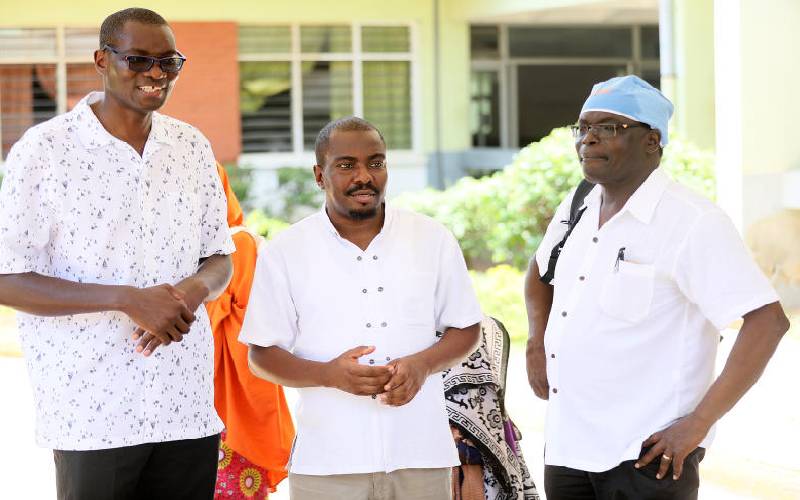×
The Standard e-Paper
Stay Informed, Even Offline

Kenya Obstetrical and Gynaecological Society president Dr Benjamin Odongo with Dr Francis Were [right] and Dr Mbete Juma (centre) during the pre-Congress workshop at the 44th Kenya Obstetrical and Gynaecological society congress to be held from today at Msambweni Ref feral Hospital in Kwale County. [Omondi Onyango, Standard]
Only one per cent of Kenyan men have undergone a vasectomy, says the Kenya Obstetrical and Gynaecological Society (Kogs).